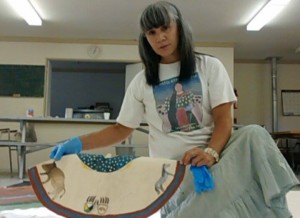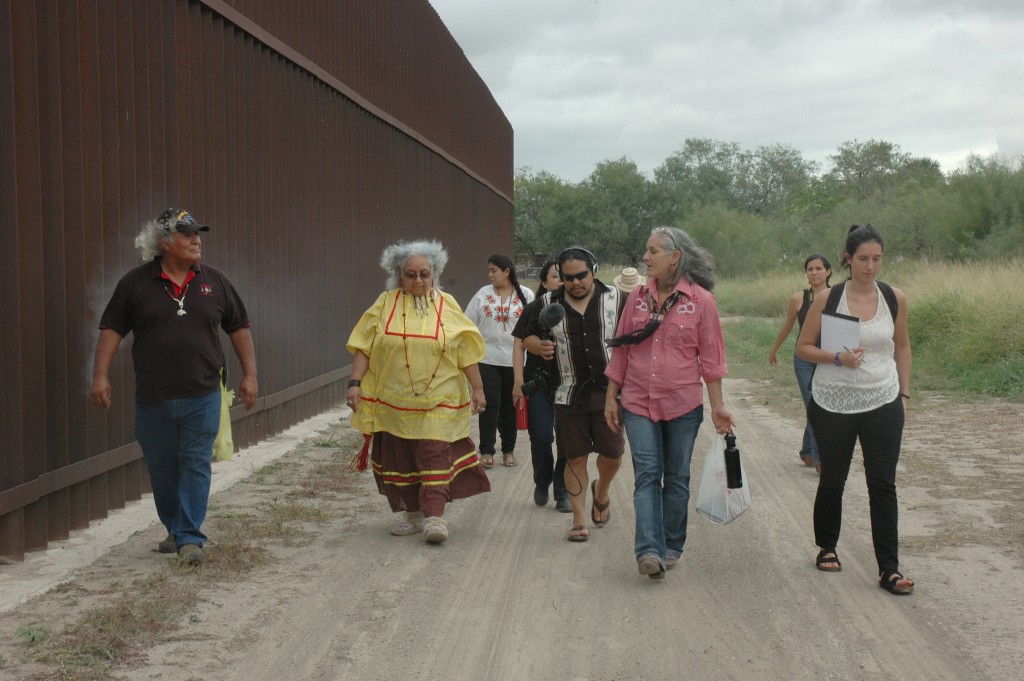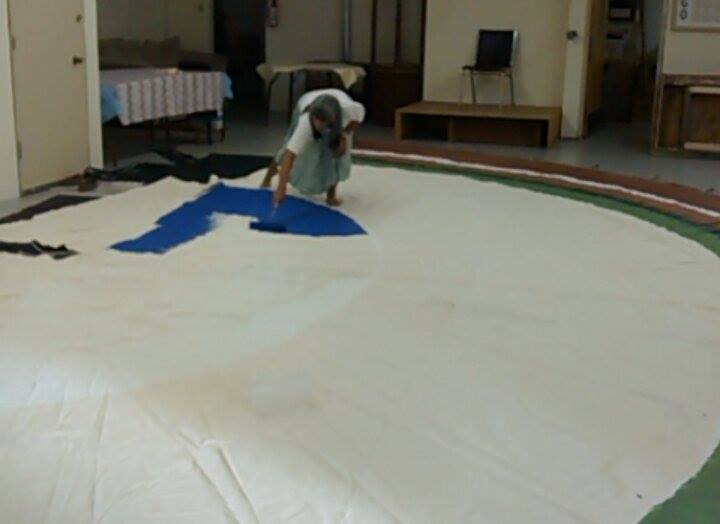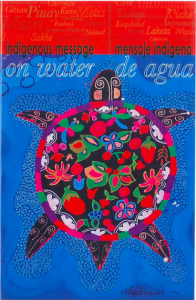
Margo Tamez (Kónitsąąíí Cúelcahén Ndé/Big Water and Tall Grass Peoples), MFA, PhD, is an enrolled citizen of the Lipan Apache Band of Texas and an Assistant Professor in the Indigenous Studies Program at the University of British Columbia, (Okanagan Unceded Territory) Canada.
She is the author of Naked Wanting (2003) and Raven Eye (2007) nominated by the University of Arizona Press for the Pulitzer Prize and the Winner of the Cather Award in Poetry. Her interests are Indigenous poetics, community, identity, women, kinship, oral history, narrative memory, epistemology, genocide, Indigenous rights embodiment and resistance. She is currently working on a historical monograph on Lipan Apache women’s land-based struggles from 1524 to the resistance of the border wall construction and on a book of poems relating the Lipan Apache narrative memory of genocides.
Academic article: Indigenous women’s rivered refusals in El Calaboz
This essay examines how indigenous peoples trouble nation-borders, and how the US Department of Homeland Security, and the official histories, affect the communities of Calaboz, Texas. It shows cases of Ndé epistemologies, and ways of remembering through rivering ancestral relationships to place, language, and families. Through concrete knowledge-making sites like weaving, storytelling, and pictographs, the essay demonstrates and Indigenous refusal of dispossession in borderlands.
Academic Article: DÁANZHO HA’SHI ‘DAŁ’K’IDA (LONG AGO), OF DEEP-PLACE (WAY BACK THERE), AND OF WOMEN’S EPI-CENTRIC EMBODIED ‘ÁÁ’ÁNÁ, ‘DOO MAANAASHNI’ (REMEMBERING)
This article re-positions Indigenous women’s memory, remembering of being and belonging to place, and oral storying of land embodied knowing as crucial pillars of recent Ndé (Lipan Apache) women’s resistances to dispossession and erasure. Ndé women are asserting the right to exist, to identity, and to place are intrinsically enmeshed in the Big Water peoples’ country, a space which has been violently and continually colonized and recolonized by European, Euro-Mexican, Euro-American powers and successor states. In the process of contesting and refusing state dispossession and the gulag carceral border wall cutting through community lands, Indigenous women are recovering underlying knowledge systems and invoking women’s memory of law and governance is rooted in matrilineal place-based systems of deep-time dáanzho ha’shi ‘dał’k’ida (long ago), of ‘áá’áná (deep-place way back) and of ‘doo maanaashni’ women’s (deep remembering) through inextinguishable, epi-centric, embodied belonging in Big Water country.
Journalistic Article: Indigenous Message on the Water
This piece is an example of Tamez’ new, experimental work in Indigenous Poetic Sovereignty and revival of Ndé language as a site for engendering Ndé women’s crisis as dispossessed peoples within the traditional Ndé homelands, as a result of colonization, modernization, industrialization, and privatization of Ndé territory and resources which opened up ownership to not only Euro-descent settlers and their industrial economies, but also opened up federally sanctioned stewardship authority of the Ndé unceded homelands to federal tribes in neighboring states, such as Oklahoma and New Mexico. This piece recalls and re-spatializes Ndé territorial integrity back to Ndé isdzáné (the women), the traditional matrilineal stewards and authorities over Konitsaaiigokiyaa’en—Big Water Peoples’ country. In assertive ways, the piece calls attention to medicines, water-sheds, sacred grounds, and ceremonial spaces known intimately to Ndé peoples who remained in the homelands, despite nearly 200 years of genocidal processes to erase Ndé existence and memory. Crucially, the piece declares to related Ndé peoples in federal relations with the U.S. government that these unceded places are remembered and are still registered by Ndé of Konitsaaiigokiyaa’en as unsurrendered, contested, and included in the accounting of the River Peoples’ memory of Ndé tangible, inextinguishable heritage.
The Lipan Apache Women Defense
Lipan Apache Women Defense (LAW-Defense) is an Indigenous Peoples’-based organization. It supports local capacity building, documentation, research, and investigations related to Indigenous peoples’ rights affirmed in the U.N. Declaration on the Rights of Indigenous Peoples.

Margo Tamez with Nde’ (Lipan Apache) community members in El Calaboz, Texas, by the border wall

Margo Tamez bringing back Nde’ women’s gowa gokal gozhoo ‘house of good law’
